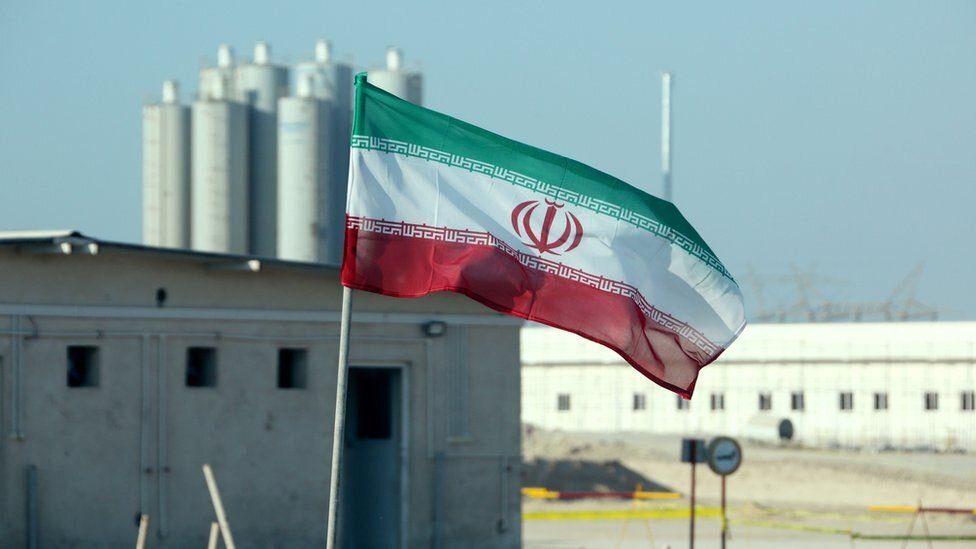As of now, no official comments have been issued by Iranian, Qatari, or US spokespeople regarding these developments.
Qatar held separate bilateral meetings with Iran and the United States this week, addressing matters related to Iran’s nuclear file, sources told Reuters on Wednesday.
The discussions differ from Qatar’s previous shuttle diplomacy, which successfully paved the way for the recent historic Iran-US prisoner exchange, the two sources revealed.
Doha, known for its leading mediation efforts, is urging both parties to engage in constructive dialogue and reach mutual “understandings,” Reuters said.
These pivotal meetings took place on Monday and Tuesday in New York during the annual United Nations General Assembly, one source disclosed while speaking on condition of anonymity due to the sensitivity of the matter.
The second source, a Middle East diplomat privy to the matter, disclosed on more bilateral talks this week, although specific details remain concealed.
Characterising the New York meetings as “talks for talks,” the diplomat clarified that the primary objective was to establish a foundation for future indirect discussions aimed at achieving a comprehensive “understanding” of the nuclear file.
As of now, no official comments have been issued by Iranian, Qatari, or US spokespeople regarding these developments.
Days earlier, Doha voiced optimism following the landmark Iran-US prisoner swap in the Gulf nation on Monday which could be a crucial catalyst for advancement in relations between the long-standing adversaries.
Qatar’s central role in the historic Iran and US prisoner swap took centre stage as its prime minister expressed immense pride in his country’s efforts during an exclusive interview with CNN.
When asked if this breakthrough could signify a potential reconciliation in Iran-US relations, Sheikh Mohammed, who is also the Gulf nation’s foreign minister responded optimistically, saying: “I cannot claim that this will lead to a nuclear deal, but it’s going definitely to lead to a better environment.”
“What happened yesterday actually was a great building block for rebuilding the confidence between the two countries,” he added.
“I hope both countries are believing that this will lead to a better environment to go for an entire agreement on the nuclear issue, and any other outstanding issue.”
Sheikh Mohammed bin Abdulrahman Al Thani said: “We were so proud to see that Qatar helped in bringing those people back to their families.”
Animosity between the US and Iran exacerbated when Washington unilaterally abandoned the 2015 nuclear deal in May 2018 under the Trump administration’s “maximum pressure” campaign on Tehran. On top of that, the US reimposed sanctions on Iran.
Washington continues to harbour concerns that Iran’s nuclear programme may be geared towards the development of nuclear weaponry, an assertion strongly denied by the Islamic Republic.
Iran, although an official signatory of the NPT, has been under incessant western scrutiny for the latter’s suspicion of the Islamic Republic’s alleged use of its uranium enrichment programme to develop “atomic bombs”.
Tehran maintains it is for energy production and to manufacture radiopharmaceuticals for use in the country’s medicinal sector.
“The head of the Islamic revolution, Imam Khomeini, had released a global fatwa [ruling] that obtaining a nuclear weapon, not just using it, but also obtaining it is haram [prohibited],” Iran’s envoy to Qatar Hamid Reza Dehghani told Doha News in May 2022.
Efforts by the Biden administration to resurrect the Iran nuclear deal have faced setbacks.
The milestone Iran and US prisoner swap deal brokered by Qatar, which saw five prisoners released by each side in exchange for unlocking $6 billion worth of Iranian assets, materialised despite new US sanctions on Iran.
On the same day of the prisoner exchange, reports said US President Joe Biden intends to enact fresh sanctions against Iran’s intelligence ministry and former President Mahmoud Ahmadinejad, despite officials and organisations like the United Nations voicing hope for an easing of tensions between the decades-old foes after the prisoner exchange.
“We very much hope that it leads to greater cooperation and a lessening of tensions,” said Stephane Dujarric, spokesperson for UN Secretary-General Antonio Guterres.
An Al Jazeera correspondent described the move from Washington as a message signalling “this is still very much an adversarial relationship.”
The US also slapped fresh sanctions on Tehran on Friday, just days ahead of the prisoner swap, targeting numerous Iranian officials and entities over their alleged involvement in the “violent suppression” of anti-government protests, reports said.
The already-enacted US sanctions on Iranian banks have significantly limited Iran’s capacity to fund essential humanitarian imports, with Human Rights Watch pointing to dire implications for the health of Iranians and their ability to obtain necessary medicines.
Iran’s Ambassador to Qatar, Hamid Reza Dehghani, told Doha News in May 2022 that the crushing sanctions have impacted the country’s ability to acquire medicines, especially during the Covid-19 global health crisis.
“There are people impacted and children with [cancer] that needed some medicine. Since we were unable to send the money and pay for the medicine, many people died for this reason,” Dehghani told Doha News at the time.
This is despite “exemptions” in the rigid measures for imports of humanitarian goods, Reuters reported.







